Covid: Cases in County Durham triple inside a week
- Published
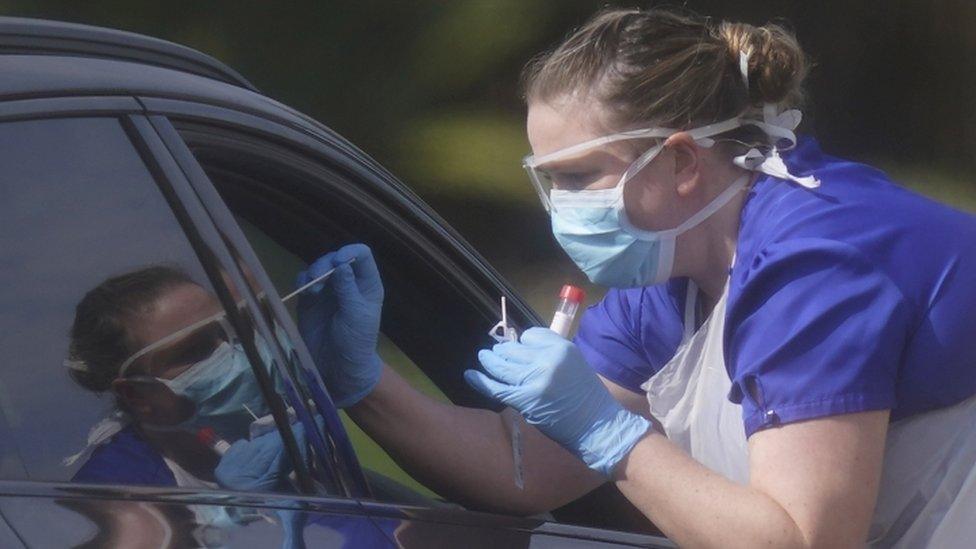
Extra testing facilities have been opened in the city of Durham, health officials say
The number of cases of coronavirus in County Durham has more than tripled in a week, according to the latest figures.
Durham County Council said the greatest rise was among 19 to 24 year olds with the dominant strain being the Delta variant, which originated in India.
In the week up to 16 June, there were 882 cases in the county compared to 281 the previous week.
The council urged everyone to carry out weekly lateral flow device (LFD) tests.
There are currently 166 cases per 100,000 people in County Durham, a sharp rise compared to 53 the previous week.
However, Newcastle still has the highest number of cases in the North East per 100,000 at 212 - almost double the number of 108 from the previous week.
Others areas remain high, including North Tyneside at 211, Northumberland 128, Gateshead 111, and Darlington with 100 cases per 100,000 people.
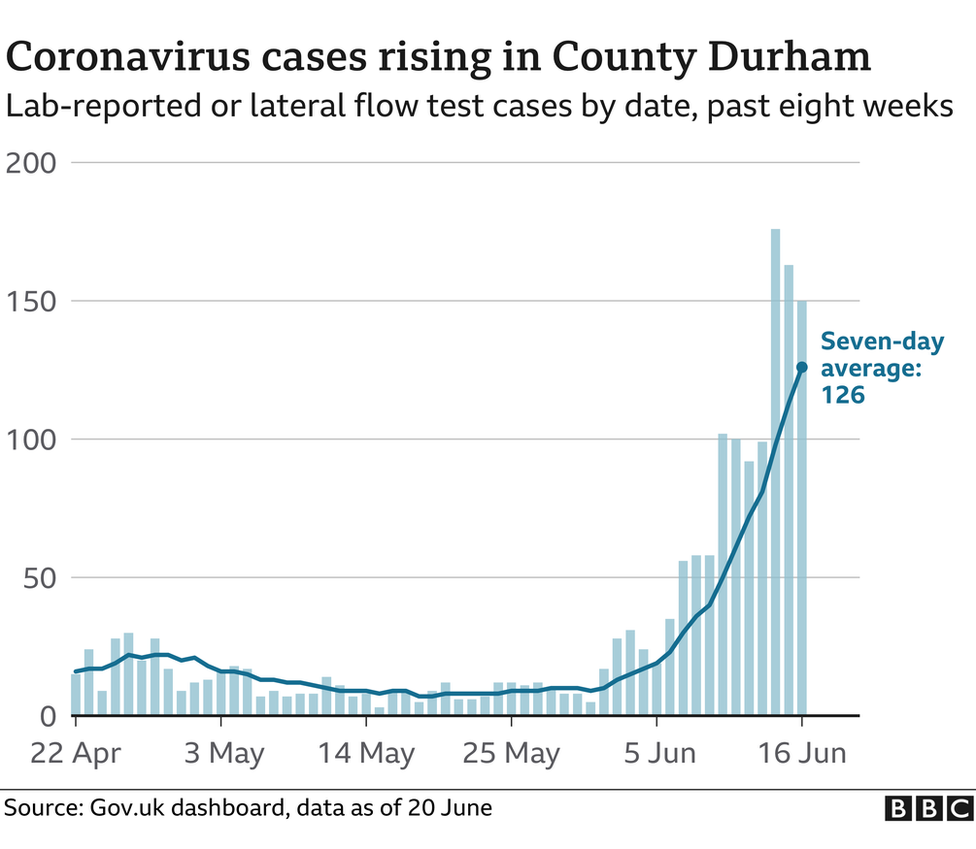
'Get tested'
Amanda Healy, director of public health for County Durham, said: "We are taking steps such as increasing access to testing to try and reduce transmission.
"We are also asking everyone in the city to play their part by following simple steps such as socialising outdoors where possible, taking up both doses of the vaccination and getting tested twice a week.
"The vast majority of these cases may be in young people but that does not mean other age groups do not need to be vigilant.
"Given the Delta variant is more transmissible, it is easier for it to spread to older age groups which may be more vulnerable and this is why it is so important that everyone does their bit."
However, the rapid rise in cases is so far not impacting on hospital admissions.
In the County Durham and Darlington NHS Foundation Trust area, there are currently six patients in hospital with Covid compared to five the previous week.
In the Newcastle area the number is 11 up from six the previous week, almost double, but still relatively low.
The local authority has also written to schools and businesses in and around Durham City to ask for their support in making parents and customers aware of the need to be vigilant.

Analysis
Rob England - BBC England data unit
County Durham is not alone in seeing cases rise at this pace, and there are other parts of the North East hit harder by the virus at the moment.
But an increase of this size is usually seen in places with much lower infection rates to start with.
As with other parts of England, cases in County Durham are focussed on younger age groups - those who haven't had the chance of a vaccine yet - and is likely to be why neighbourhoods with younger populations, such as Durham's city centre, seem to be worst affected.
This is positive in some ways; it suggests the vaccine is working to protect older people, who are at more risk of becoming serious ill.
However, evidence suggests the Delta variant does carry with it a higher chance of hospitalisation, which adds to other negative outcomes such as long Covid.
As of the latest data, about 33% of people aged 25-29 in County Durham have received a first dose. It's likely we'll see this percentage rise over the coming weeks due to the vaccine's ability, even after one dose, to keep people from becoming serious ill or spreading the virus.
This will hopefully slow down any new wave of hospital admissions which might emerge.

Follow BBC North East & Cumbria on Twitter, external, Facebook, external and Instagram, external. Send your story ideas to northeastandcumbria@bbc.co.uk, external.
Related topics
- Published20 June 2021
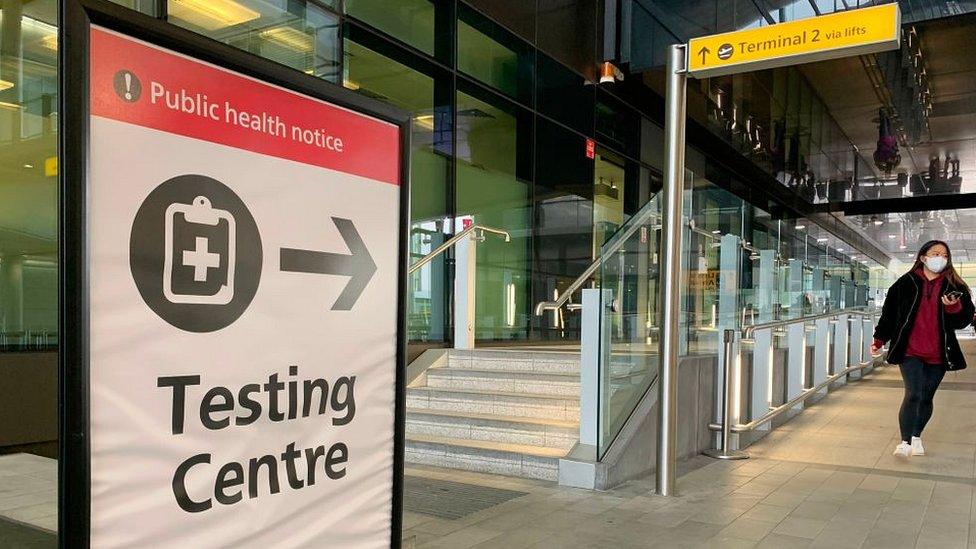
- Published10 June 2021
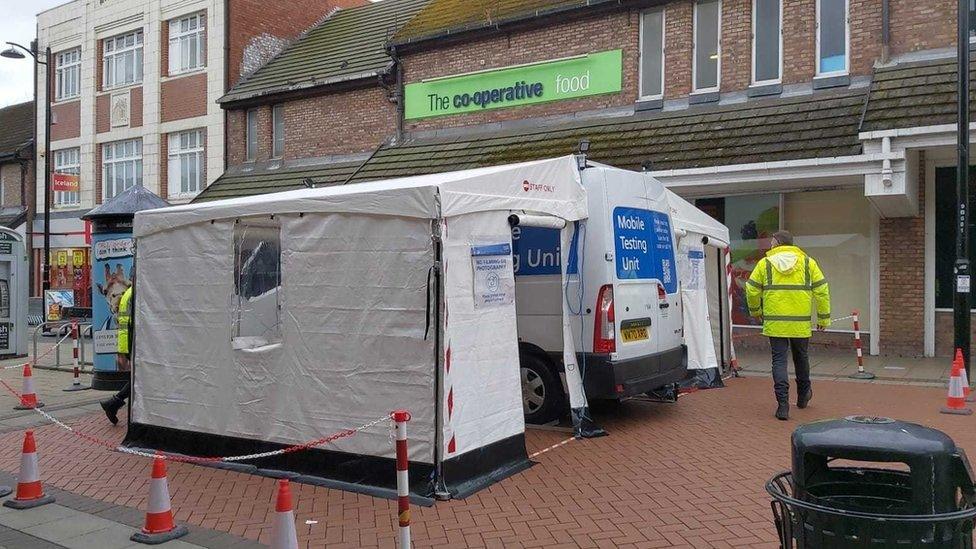
- Published23 May 2021
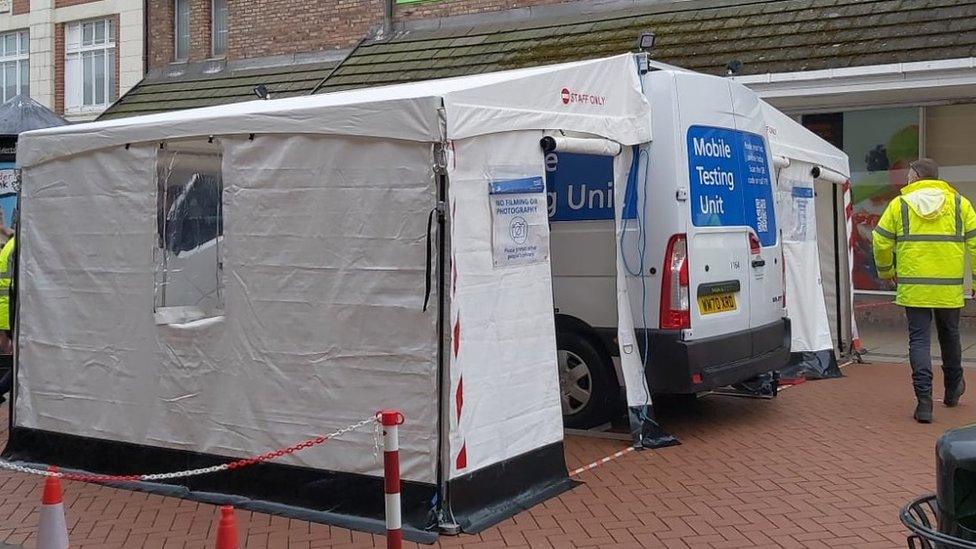
- Published22 May 2021
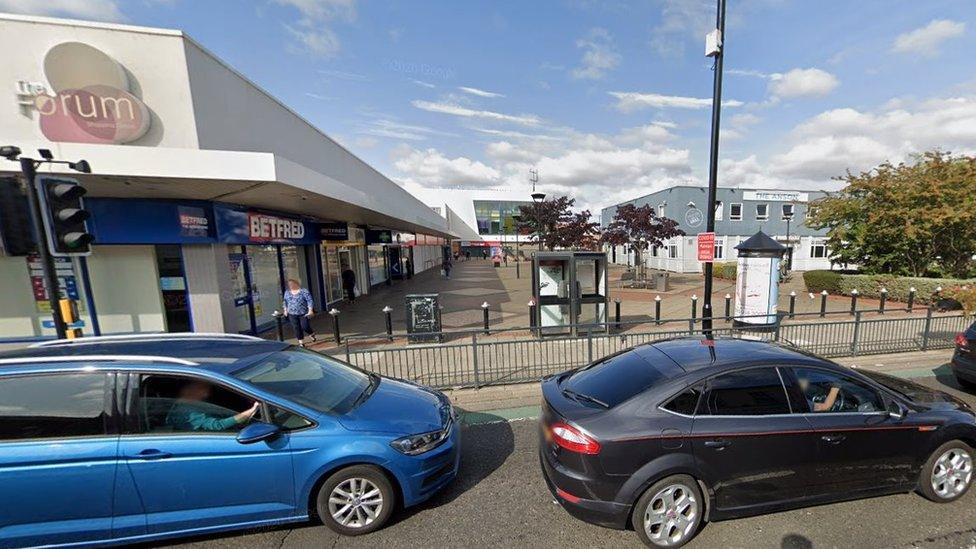
- Published8 September 2020
